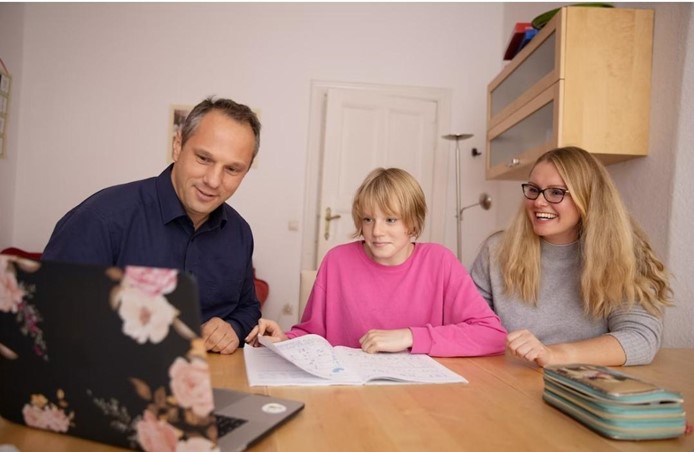The involvement of parents when it comes to their children’s educational pursuits is important. Education is both the students’ and their parents’ shared responsibility. This is because it determines the academic performance of the child. A parent playing an active role in their child’s education and not leaving it in the hands of teachers explains this concept. Parents play a significant role in molding the lives of students because they are the first teachers from birth.
The learning and development of children are greatly aided by parents. Parents can raise contented, well-rounded kids who grow up to be successful in their academics. With due help from home and school, students can write their essays and research papers with little to no surveillance. When tasked with a lot of school work, they can access the writing service studymoose.com for free academic help. Being a teacher, friend, parent, and most importantly, a role model helps students excel. This article further explores the responsibilities of parents and students for education.
How Parents Can Be Involved in Students’ Education
A great method to make sure your child is receiving lessons that will help them grow academically is to be involved in their education. Here are some ways parents may encourage students’ academic efforts.
1. Encouraging Learning at Home
Both at home and in school, students learn. Parents may encourage learning at home by designating a place for homework and reading books. They can take time to talk to them about what they learned as well as provide explanations where they face difficulties.
2. Attending School Meetings
Parents often have regular meetings to talk about school-related matters. It is important to familiarize with their children’s schools by attending parent-school meetings. They can join online sessions if they cannot attend physical meetings. Alternatively, they can put in a special request to have the meeting notes be delivered to them. This comes in handy if they are unable to attend meetings.
3. Parent-Teacher Relations
Parents ought to monitor how students perform in school. By having constant conversations with teachers, parents involve actively in education and get more information on their child’s academic strengths and weaknesses. By collaborating with a teacher, they learn distinct characteristics of their children. Open communication with a teacher is crucial for students’ academic success. If they have any questions or concerns, they can speak with the teacher and address them together.
4. Encouraging Reading
Assisting students to build character in reading starts from childhood. This is why parents must encourage reading at an early stage. Show them the lifelong impact reading will have not on their academics but on their career and let them explore. If possible, parents can read alongside their children and share their thoughts. This way, parents can resonate with their children.
5. Embarking on Educational Vacations
Parents can boost their child’s academics by taking them on trips to education-related centers. This introduces them to fresh ideas that will only serve to broaden their horizons. It’s not a terrible idea to take students to facilities where they may engage in activities that will improve their aptitude. They get more out of the experience when they engagingly execute things.
Responsibilities of Students in Education
Parents and students must collaborate in education. Each person has duties and a part to perform. Below are a few responsibilities of a student towards their study and education:
1. Obeying School Regulations
All guidelines put out by the school and the teacher should be followed by the students. This is because regulations protect student safety and effective learning in every class. When students obey school rules, they are developing character for the future.
2. Completing School Tasks/Assignments
Students must complete their school tasks as these influence their grades. These include essays, research papers and assignments. They are accountable for any make-up exams for missing exams, and they must work with their teacher to reschedule incomplete tasks. Also, they must take their lesson and pay rapt attention to their teacher in the university.
3. Active Engagement in Educational Activities
Students should participate in occasional school activities. They should be able to take part in the school’s many sports, cultural clubs, and university trips. They must be active in both curricular and non-curricular activities. This is because both have impacts on their academic performance.
Conclusion
The contribution of parents to their children’s learning, growth, and success in school and life is crucial. Parents must be actively involved
in a child’s education. This fosters a relationship between them and their children and helps them connect deeply even as a family. The learning process for the student will benefit from improved parent-teacher communication and collaboration.

